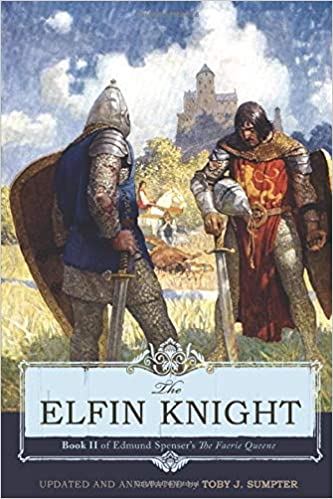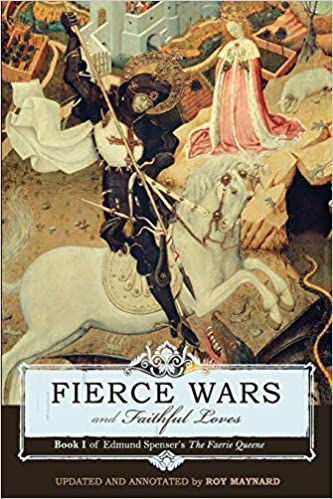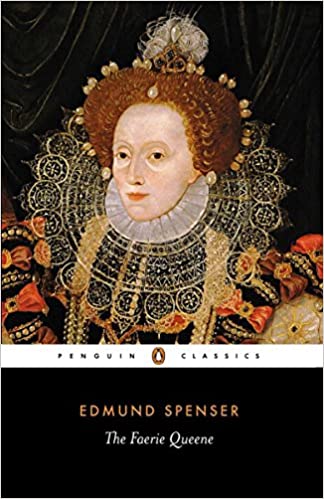The Elfin Knight
Edmund Spenser (1559-99) has earned the title "the poet's poet" because of the high poetry of his epic and because so many great poets, including Milton, Dryden, Tennyson, and Keats, cut their poetic teeth on The Faerie Queene. The hero of Book II is Sir Guyon, the knight of Temperance. But do not let that throw you. This is not a poem about teetotalism. As C.S. Lewis puts it, The Faerie Queene "demands of us a child's love of marvels and dread of bogies, a boy's thirst for adventures, a young man's passions for physical beauty." Toby Sumpter's modernization follows Roy Maynard's Fierce Wars and Faithful Loves, and includes similar notes that explain obscure vocabulary and references. Eat this book. Devour it. Read it and then reread it. Make its characters and adventures and lessons and images a part of your mental furniture. Be enchanted. Feed your hunger for fantasy. Exercise your faith. Test your judgment. Form your imagination. Enter Faerie Land.
More info →Fierce Wars and Faithful Loves
Edmund Spenser (1552-99) ranks just below Shakespeare, with Chaucer and Milton, in the pantheon of great writers. In The Faerie Queene, he spins a sub-created fantasy universe that would be the model for Tolkien and Lewis. This poet, whom Milton considered to be a better teacher than the medieval theologians, wrote an epic tale of adventure, love, noble deeds, and faith. Despite all his acknowledged greatness, almost no one reads Spenser anymore.
Roy Maynard takes the first book of The Faerie Queene, exploring the concept of Holiness with the character of the Redcross Knight, and makes Spenser accessible again. He does this not by dumbing it down, but by deftly modernizing the spelling, and including notes in the margins explaining the obscurities in clever asides, and cuing the reader towards the right response.
More info →The Faerie Queene
The Faerie Queene was one of the most influential poems in the English language. Dedicating his work to Elizabeth I, Spenser brilliantly united Arthurian romance and Italian renaissance epic to celebrate the glory of the Virgin Queen. Each book of the poem recounts the quest of a knight to achieve a virtue: the Red Crosse Knight of Holinesse, who must slay a dragon and free himself from the witch Duessa; Sir Guyon, Knight of Temperance, who escapes the Cave of Mammon and destroys Acrasia’s Bowre of Bliss; and the lady-knight Britomart’s search for her Sir Artegall, revealed to her in an enchanted mirror. Although composed as a moral and political allegory, The Faerie Queene’s magical atmosphere captivated the imaginations of later poets from Milton to the Victorians.
This edition includes the letter to Raleigh, in which Spenser declares his intentions for his poem, the commendatory verses by Spenser’s contemporaries and his dedicatory sonnets to the Elizabethan court, and is supplemented by a table of dates and a glossary
For more than seventy years, Penguin has been the leading publisher of classic literature in the English-speaking world. With more than 1,700 titles, Penguin Classics represents a global bookshelf of the best works throughout history and across genres and disciplines. Readers trust the series to provide authoritative texts enhanced by introductions and notes by distinguished scholars and contemporary authors, as well as up-to-date translations by award-winning translators.
More info →


